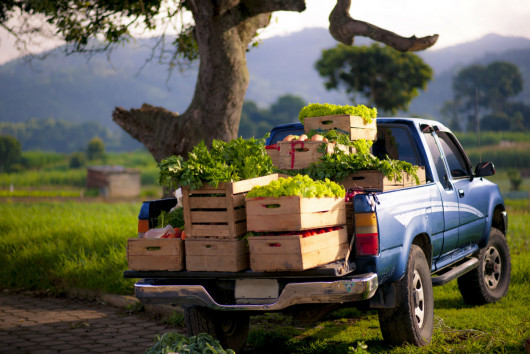How to secure agri-food supply chains post-Brexit and at what price?
25-02-2019

Food chain organisation, processing and marketing of agricultural products, animal welfare and risk management represent 10.4% of rural development public expenditure in the EU. Whether supporting participation in quality schemes, local markets, short supply chains, the organisation of producer groups and inter-branch organisations, rural development funds provide help for 945.000 agricultural holdings across the EU to promote and achieve a more efficient organisation of the food chain.
Stimulating shorter value chains and promoting the creation of local markets can bring tangible benefits for all – small farmers obtain new market orientation and get involved in cooperative activities, thus ensuring income. New forms of value chains can also be achieved by organising producer groups and inter-branch organisations and selling online.
Over several decades, European producers have established complex agri-food supply chains involving almost every country in the EU, including the UK. Due to the uncertainty of a Brexit deal, this supply chain is now under discussion.
EURACTIV invites you to this high-level Stakeholder Workshop to discuss the security of agri-food supply chains post-Brexit.
Questions will include:
- What would be the impact of a no-deal Brexit on EU agri-food supply chains?
- What role can policy-makers play to ensure a secure agri-food supply chain within the EU and the UK?
- How is Ireland, potentially the MS most affected, preparing?
- New value chains – where are the best practice examples and where have EU funds been used wisely?
- Do new forms of value chains – regional, local, online – present a fair return for farmers?
- Does the family farm model have a future?
- Are there “hidden” benefits of the CAP that enhance agriculture as a public good in the broader European context?
DISCLAIMER: This publication reflects the views only of the author, and the European Commission cannot be held responsible for any use which may be made of the information contained therein.
Supported by:

Location
Europe House
32 Smith Square, London SW1P 3EU
Google Maps >>
Panellists
Mike Petersen, New Zealand’s Special Agriculture Trade Envoy
Nick von Westenholz, Director for EU Exit and International Trade, National Farmers Union
Paul Kelly, Director, Food Drink Ireland, Ibec
Allie Renison, Head of EU and Trade Policy, Institute of Directors
Carmen Hubbard, Research Leader, "Brexit: how might UK agriculture survive or thrive?", UK in a Changing Europe
Moderator
Natalie Sarkic-Todd, Director, Europe Matters
Schedule
17:30 – 18:00 Registration
18:00 – 18:30 Opening statements
18:30 – 19:30 Discussion and Q&A
19:30 – 20:30 Networking cocktail
Contact
Teresa Dominguez
teresa.dominguez@euractiv.com
+32 (0) 2 788 36 93




